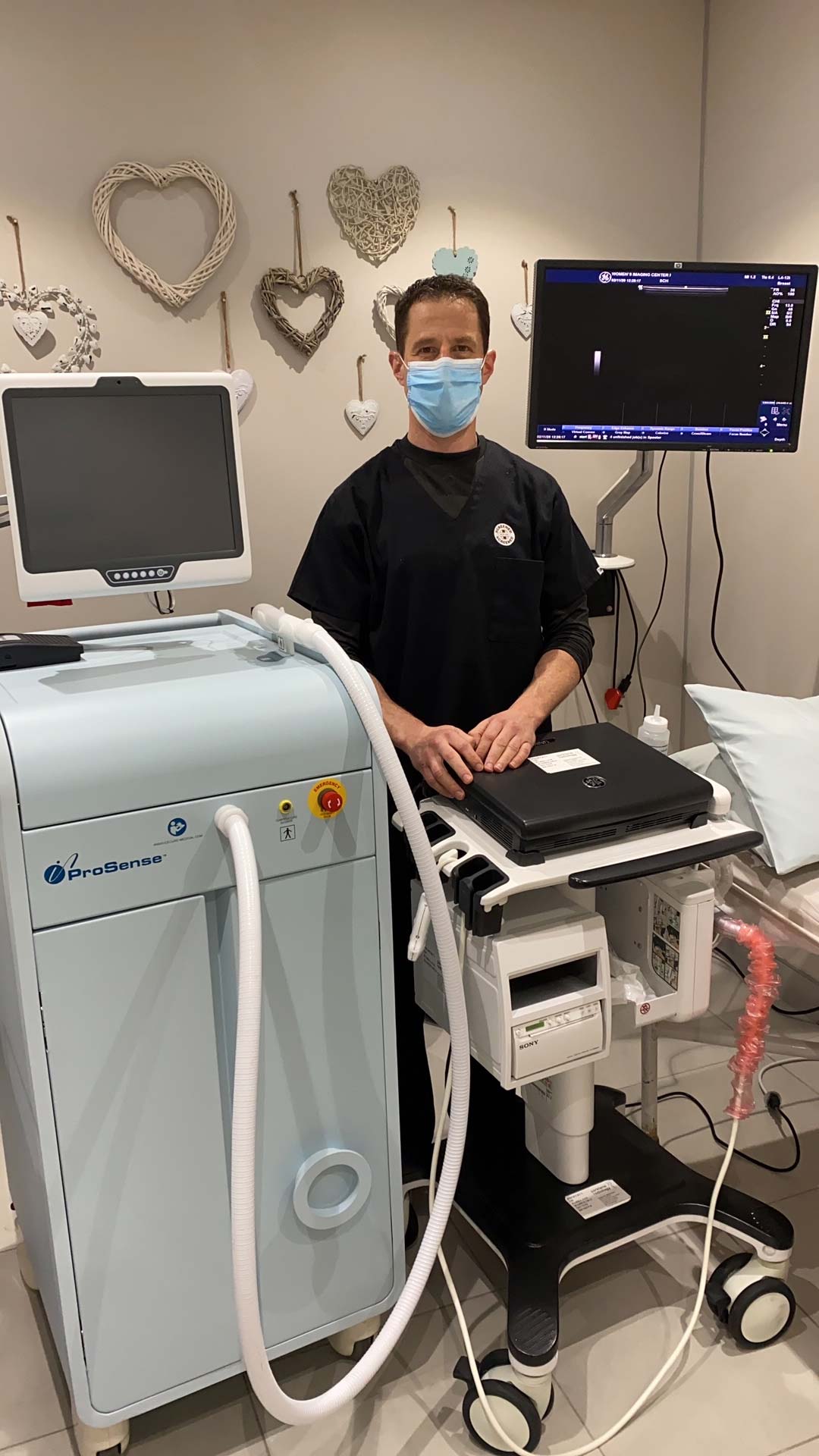‘Ice therapy’ for breast cancer established at Parklane Radiology
November 12, 2020
Diagnostic radiologist, Dr Peter Schoub of Parklane Radiology, based at Netcare Park Lane Hospital in Johannesburg. Parklane Radiology recently introduced cryoablation for small breast cancers, which is a safe and painless one-day procedure that offers an alternative to surgery for suitable patients.
Precise, minimally invasive cryoablation offers out-patient alternative to surgery
Cryoablation, a form of therapy where small tumours or lesions are destroyed through freezing instead of surgical removal, offers a one-day-procedure alternative for people requiring treatment for small breast cancers in appropriate instances.
“This advanced application of cryotherapy, supported by radiology technology, for certain breast cancers is a valuable addition to the options available to individuals and treating specialists, particularly for those people who may be at additional risk for anaesthesia due to other health issues or advanced age,” says Jacques du Plessis, managing director of Netcare’s hospital division.
“We congratulate Dr Peter Schoub and the team at Parklane Radiology on establishing this important service, which may either replace or delay the need for surgery to address either benign or malignant lesions in breast tissue.”
Dr Schoub explains that the procedure is known as cryoablation, with ‘cryo’ meaning ‘freezing’ and ‘ablation’ meaning ‘destruction’ of the problematic tissue, and that appropriate patients are referred for the treatment from the Netcare Milpark Breast Care Centre of Excellence headed by renowned surgeon and breast disease specialist, Professor Carol-Ann Benn.
“Using local anaesthetic with ultrasound guidance, a needle-like probe is inserted into the tumour. Once in the centre of the tumour, liquid nitrogen cycled through the needle causes the tissue around the needle tip to freeze instantly, engulfing the tumour in a ball of ice,” Dr Schoub says.
“Ultrasound is used because it is extremely important that the probe is guided with pin-point accuracy so that the freezing action can work on the tumour primarily, sparing surrounding healthy tissue. We alternate freezing and thawing cycles of the probe to destroy and neutralise the cancerous tissue. By the end of the procedure there should be no viable cancer cells left.”
“Throughout the procedure, the area within the breast that is around the freezing zone is very carefully monitored to preserve healthy tissue. The skin and tissues within the breast are numbed before the needle is inserted so the procedure is painless and safe, lasting only 30 to 40 minutes. Soon after, the patient is able to go home.”
The Netcare Milpark Breast Care Centre of Excellence, which follows a comprehensive approach to the management of breast conditions and diseases, has already referred a number of patients for cryoablation based on consultation and recommendation of the multi-disciplinary teams of healthcare professionals who are involved in each person’s diagnosis, clinical assessment, counselling, treatment and support.
“The doctors in the multi-disciplinary team are required to follow international guidelines when proposing treatment options. Many women treated at our unit, for example, benefit from endocrine manipulation therapy followed by cryosurgery, which freezes the tumour, rather than having surgery as the first line of treatment,” Professor Benn says.
Dr Schoub explains that while cryoablation replaces the need for surgery, supplementary treatments are usually prescribed by the treating oncologist, including endocrine treatment to help prevent recurrence.
“So far, there have been three large clinical trials, two of which are ongoing, and multiple smaller studies and all the published results show more than 95% successful ablation in tumours smaller than 1.5cm,” Dr Schoub says.
“Some bruising at the site may be experienced for a week or two following cryoablation, however this minimally-invasive procedure is only associated with mild pain for a few days afterwards, which can be controlled with anti-inflammatories and paracetamol. A lump of scar tissue at the tumour site is gradually absorbed by the body, usually within six months to a year, and follow up mammograms, ultrasound and MRI scans are used for confirmation that there is no residual breast cancer left.”
“The introduction of the cryoablation procedure at Parklane Radiology, based at Netcare Park Lane Hospital in Johannesburg, has been well timed this year, as persons with weakened immune systems or other factors that could increase their risk for serious COVID-19 complications may be reluctant to undergo surgery if other less invasive options are available, while still addressing safe oncology treatment principles,” says Nolan Daniels, regional director of Netcare’s South West region.
“We trust that many people will benefit from cryotherapy in the years to come, just as the American College of Radiology-accredited mammography imaging service also provided by Parklane Radiology has already demonstrated its value for women through providing high quality imaging while maintaining the highest standards in patient safety. This is a sterling example of the world-class healthcare focused on each individual’s needs that we strive to provide.”













